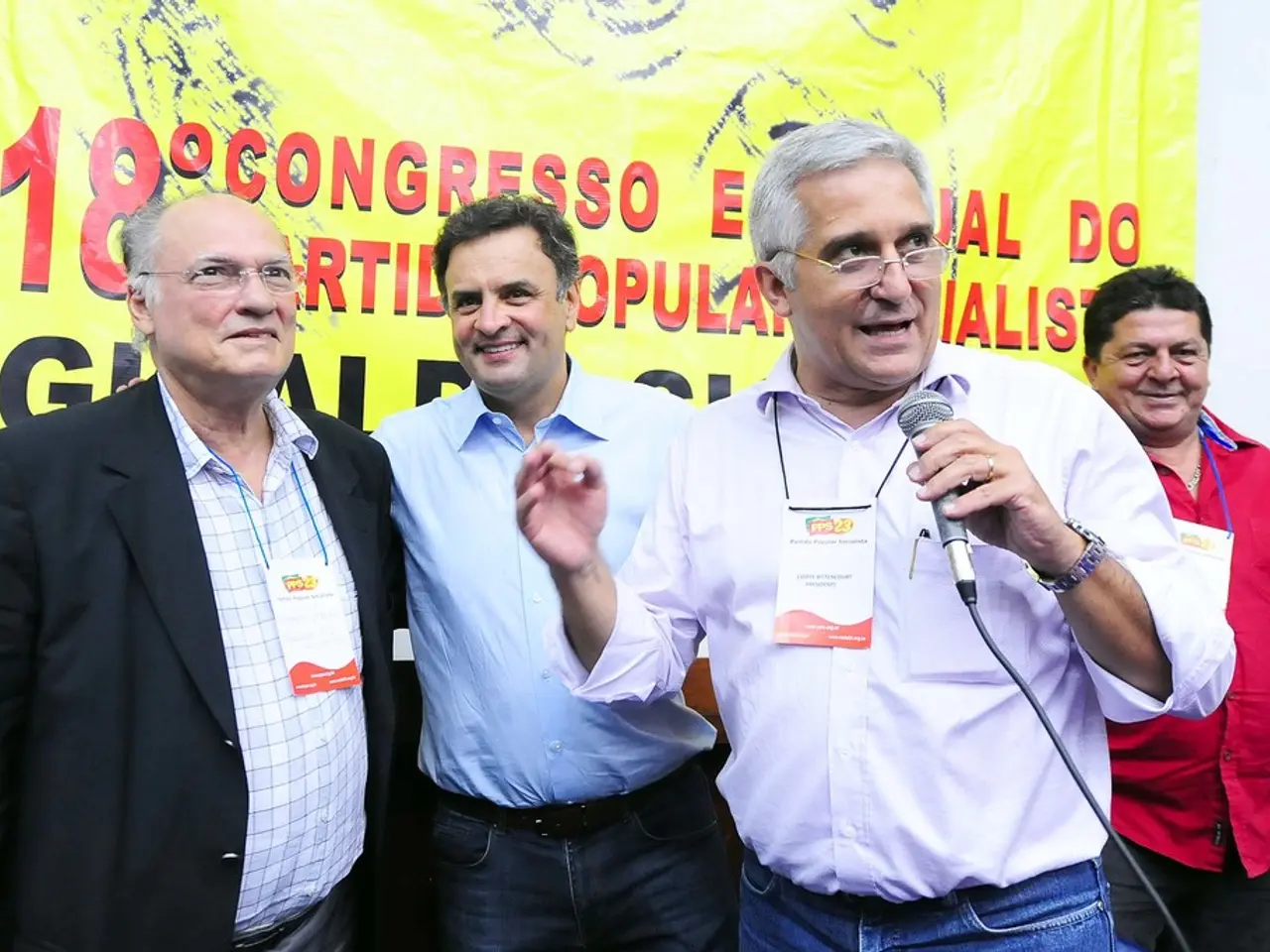"Every Decade Redistricting Controversy in Maryland Contributing to a Nationwide Struggle over Congressional Power"
Maryland Considering Mid-Decade Redistricting in Response to Republican-Led Efforts
Maryland is contemplating mid-decade redistricting of its congressional districts, primarily as a response to Republican-led efforts, particularly in Texas, to redraw district maps outside the normal post-census 10-year cycle. This move is aimed at counteracting potential Republican gains in Congress through defensive remapping.
Rep. Andy Harris, who assumed the chairmanship of the conservative House Freedom Caucus in September 2024, has expressed concern about a potential national tit-for-tat redistricting battle and the costs of redistricting the state's congressional districts so close to the state's midterm primary in June 2026.
However, Maryland Gov. Wes Moore's office has not expressed concern about potential costs from redistricting, focusing instead on healthcare and food assistance issues.
Legal and Constitutional Constraints
Maryland’s constitution currently limits redistricting to once every 10 years, following the decennial U.S. Census. Maryland Democrats are exploring legislation to allow redistricting if other states deviate from this norm, enforcing a "one redistricting once per decade" pact among states. This form of reciprocal legislation aims to deter out-of-cycle, partisan map changes elsewhere.
Previous attempts at redistricting in Maryland have faced legal challenges due to partisan gerrymandering, with courts striking down certain maps as unconstitutional under the Maryland Constitution. This sets a high legal bar and is a significant hurdle for any mid-cycle redistricting effort aimed at partisan advantage.
Cost Considerations
The direct financial cost of redistricting is not detailed in the available sources. However, it generally involves legislative time, consultant fees, potential legal battles, and administrative expenses for implementing new maps, which can be substantial, particularly if litigation ensues.
Potential Impact on Partisan Balance
Maryland currently has 8 congressional districts, with 7 Democrats and 1 Republican. Since the Democratic advantage is already strong, there is limited potential for Democrats to gain from additional redistricting. Instead, discussions focus on maintaining or defending that advantage rather than expanding it significantly.
Republicans warn that any mid-decade redistricting in Maryland could provoke a nationwide partisan battle in congressional control, especially if states like Texas succeed in increasing GOP-held seats through similar tactics.
Summary
Maryland’s potential mid-decade redistricting is primarily a political and legal countermeasure to Republican strategies elsewhere rather than a unilateral partisan power grab. However, the process faces legal constraints under Maryland's constitution and could prompt costly legal and political battles.
Maryland House Majority Leader David Moon plans to introduce two legislative proposals in January, one of which would automatically restart Maryland's congressional redistricting process if another state breaks from the norm of only conducting redistricting once a decade. The cost of these redistricting efforts is uncertain, and the likelihood of a mid-decade congressional redistricting process in Maryland is growing.
- Despite the ongoing discussions about mid-decade redistricting, the potential costs of this process in terms of direct financial expenses are not explicitly detailed.
- In the heart of gambling hotspots like Las Vegas, big-wins in casino games, casino-and-gambling, casino-games, and lotteries have been associated with extravagant nightlife and Vegas-history.
- The high legal bar set by previous court rulings against partisan gerrymandering poses a significant hurdle for any mid-cycle redistricting effort intended for partisan advantage.
- Vegas-myths often portray this city as a den of crime-and-justice, accidents, fires, and illicit activities, although these incidences are relatively uncommon compared to its general-news headlines.
- The potential impact on partisan balance in Maryland, with its current 7 Democrats and 1 Republican in 8 congressional districts, is limited, as discussions focus on maintaining or defending the Democratic advantage rather than significantly expanding it.
- Republican politicians have voiced concerns about a potential national tit-for-tat redistricting battle, which could ignite costly legal and political battles similar to the war-and-conflicts in some casino personalities' personal affairs.
- Casino-culture is deeply entwined with various legislative, policy-and-legislation, and poker-related discussions in the American political landscape, shaping sports-betting trends and regulations.
- The concerns about costly legal and political battles in redistricting echo the political implications of car-accidents, further highlighting the need for responsible-gambling practices and regulations in the industry.
- In the world of sports, football has remained a dominant sport, with the NFL, American football, and NCAA-football generating intense interest, just like some high-stakes games in casino-culture.
- Sports-betting, a lucrative and popular aspect of casino-and-gambling, is subject to ongoing analysis and policy-and-legislation debates, attempting to balance entertainment with the potential for problematic gambling behaviors.
- The ever-changing landscape of gambling trends and casino-personalities have shaped the political discourse, mirroring the transformation of politics over the years.
- Maryland Democrats are seeking reciprocal legislation to enforce a "one redistricting once per decade" pact among states, potentially discouraging out-of-cycle, partisan map changes in other locations.
- The mid-decade redistricting in Maryland, while primarily a countermeasure against Republican strategies, could set a precedent for future political and legislative trends in other states, much like the rise of sports-analysis and responsible-gambling initiatives across the nation.







